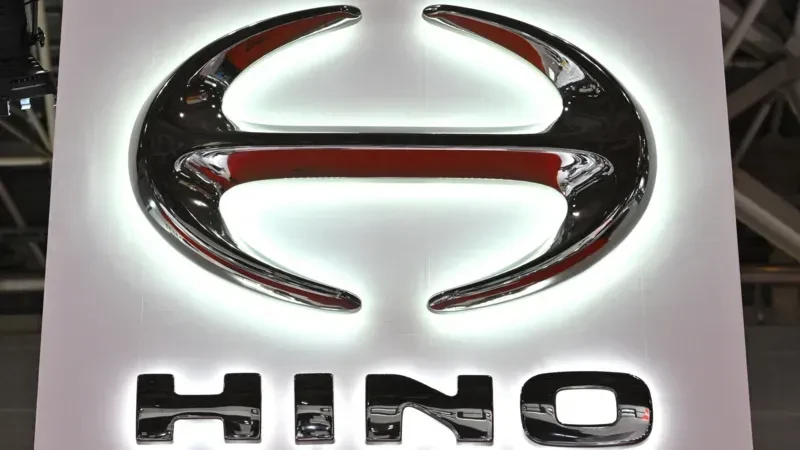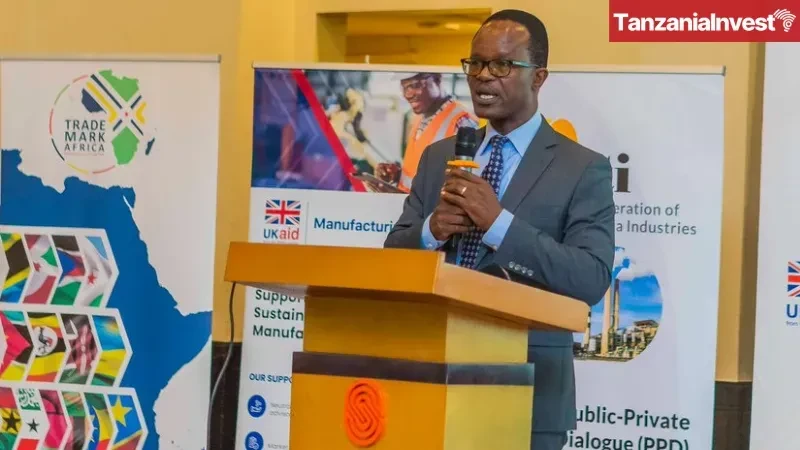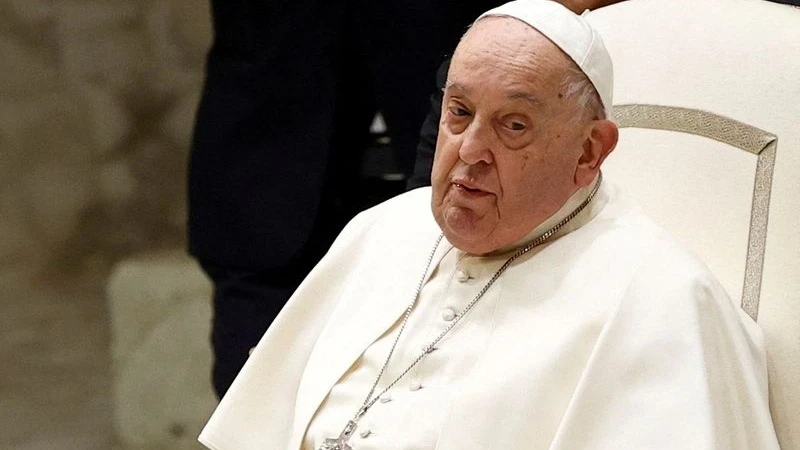Toyota to settle emissions scandal for $1.6 billion

Toyota subsidiary Hino Motors has agreed to pay $1.6bn (£1.3bn) and plead guilty to deceiving US regulators about the amount of emissions produced by its diesel engines.
The truck company will also be banned from exporting its diesel engines to the country for five years.
It comes after Hino was charged with fraud in a Detroit court for selling 105,000 illegal engines in the US between 2010 and 2022.
The settlement still requires approval by a US court.
According to the US Justice Department, Hino submitted "false and fraudulent" emission testing and fuel consumption data in a "criminal conspiracy" that allowed it to import and sell its engines in the United States.
"Hino Motors engaged in a years-long scheme to alter and fabricate emissions data in order to get a leg up over its competitors and boost their bottom-line," said FBI Director Christopher Wray.
"To further this fraudulent scheme, Hino violated laws and regulations intended to protect American's health and the environment."
On top of the five-year diesel engine import ban, Hino has also committed to a compliance and ethics plan during that period.
"We take this resolution seriously and will ensure that the field fix, the Environmental Mitigation Program, and further strengthening of our compliance system ... are implemented," said Satoshi Ogiso, Hino's chief executive and president in a statement.
"We deeply apologize for the inconvenience caused to our customers and stakeholders."
The US Environmental Protection Agency said Hino has also agreed to recall some infringing heavy-duty trucks and to replace marine and locomotive engines across the country to offset excess air emissions.
In order to cover costs resulting from its legal problems, Hino said that in its second quarter financial results announced in October, it reported an extraordinary loss of 230 billion yen (£1.2bn, $1.48bn).
In the last decade, several car makers admitted to lying about the emissions produced by their diesel engines.
In what has become known as the dieselgate scandal, brands throughout the Volkswagen corporate empire were implicated, including Audi, Porsche, Seat and Skoda as well as Volkswagen itself.
Volkswagen has spent more than 30 billion euros (£25bn, $30.9bn) paying fines, issuing recalls and compensating its customers.
Toyota is pushing back the start date for electric vehicle (EV) manufacturing in the US, as global demand for battery-powered cars continues to soften.
The Japanese motor industry giant was aiming to start production in late 2025 or early 2026.
Toyota now expects to launch its US EV operation at an unspecified time in 2026, a company spokesperson told BBC News.
Several other major car makers, including Volvo and Ford, have recently scaled back their EV plans.
"We’re still focused on our global [battery electric vehicle] target of 1.5M vehicles by 2026," said Toyota spokesperson Scott Vazin, adding that in the next two years it plans to introduce "5 to 7 [battery electric vehicles] in the US market."
Earlier this year, the firm announced it was investing $1.3bn (£980m) in its Kentucky factory as part of plans to build a three-row, electric sport utility vehicle (SUV) there.
The company has also announced plans to build another electric model at a plant in Indiana.
To support these goals Toyota is ramping up its lithium-ion battery production with a factory in North Carolina, which it expects will come online next year.
Toyota's announcement came as the global car industry continues to struggle with weakening demand for electric vehicles in some major markets.
Last month, Volvo abandoned its target to produce only fully electric cars by 2030, saying it now expected to be selling some hybrid vehicles by that date.
The company blamed changing market conditions for its decision to give up a target it had announced only three years ago.
In August, Ford announced that it is shaking up its strategy for electric vehicles, scrapping plans for a large, three-row, all-electric SUV and postponing the launch of its next electric pickup truck.
Chief financial officer John Lawler said the firm was adjusting its plans in response to "pricing and margin compression".
Top Headlines
© 2025 IPPMEDIA.COM. ALL RIGHTS RESERVED

























